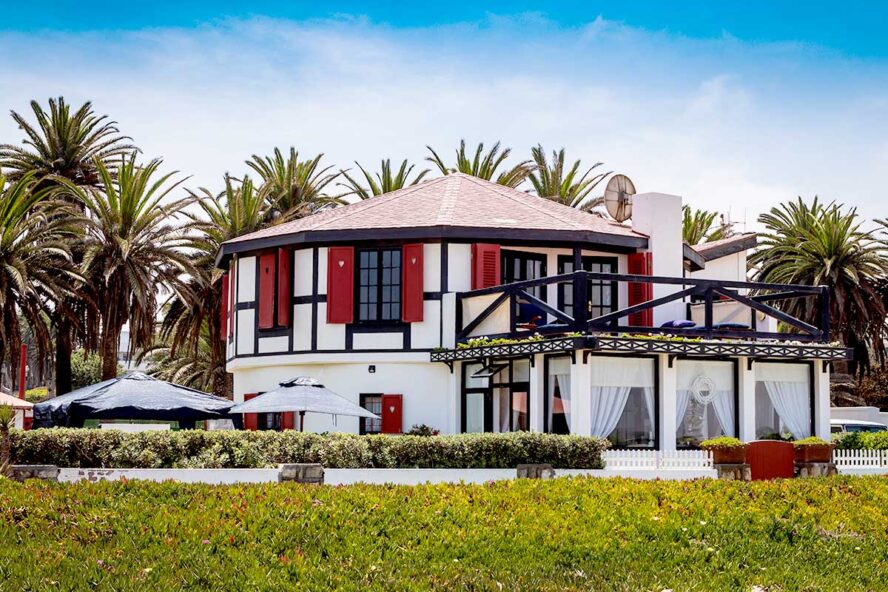Running a vacation rental or Airbnb business can be a lucrative and rewarding venture, but it requires more than just having a property to rent out. To succeed in the vacation rental industry, owners must treat their rental property as a business and manage it accordingly. This means understanding the market, creating a solid business plan, setting up the property for success, and navigating the challenges that come with managing a rental property.
Understanding the vacation rental business is the first step in running a successful Airbnb business. Owners must research the market to determine the demand for vacation rentals in their area, the competition, and the regulations and taxes associated with short-term rentals. Armed with this knowledge, owners can create a business plan that outlines their goals, target audience, marketing strategies, and financial projections.
Once owners have a solid business plan in place, they can focus on choosing the right property and setting it up for success. This involves selecting a property that is in a desirable location, furnishing it with high-quality amenities, and ensuring that it is clean and well-maintained. By pricing the rental appropriately and marketing it effectively, owners can attract guests and manage bookings and guests to maximize their profits.
Key Takeaways
- To succeed in the vacation rental industry, owners must treat their rental property as a business and manage it accordingly.
- Understanding the market, creating a solid business plan, setting up the property for success, and navigating the challenges that come with managing a rental property are all essential steps in running a successful vacation rental business.
- By pricing the rental appropriately and marketing it effectively, owners can attract guests and manage bookings and guests to maximize their profits.

Understanding the Vacation Rental Business
The vacation rental industry has been growing rapidly in recent years, fueled by the rise of online booking platforms and the increasing demand for unique travel experiences. According to a report by Statista, the global vacation rental market is expected to reach $63.87 billion by 2025, up from $57.669 billion in 2019.
A vacation rental property is a type of short-term rental property that is typically rented out to travelers for a few nights or weeks at a time. These properties can range from apartments and condos to villas and cottages, and are often located in popular tourist destinations.
One of the key factors that determine the success of a vacation rental business is the demand for rental properties in the area. Owners should research the local market to identify areas with high demand for vacation rentals and assess the competition in the area. They should also be aware of any regulations or restrictions that may apply to short-term rental properties in the area.
Another important factor is the quality of the rental property itself. Owners should ensure that their property is well-maintained, clean, and equipped with all the necessary amenities to provide a comfortable stay for guests. This includes basics such as linens, towels, and toiletries, as well as more specialized items such as kitchen appliances, entertainment systems, and outdoor equipment.
To stay competitive in the vacation rental industry, owners should also stay up-to-date with the latest trends and technologies. This may include offering services such as keyless entry, smart home automation, and online booking and payment systems. Owners can also differentiate their property by emphasizing unique features such as a stunning view, a private pool, or a convenient location.
In summary, running a successful vacation rental business requires a combination of market research, property management, and innovation. By understanding the vacation rental industry and staying ahead of the competition, owners can provide a high-quality experience for guests and maximize their profitability.
Creating Your Business Plan
Creating a business plan is an essential step in running your vacation rental like a business. It helps you identify your target market, set financial goals, and address legal and regulatory requirements.
Identifying Your Target Market
To create a successful vacation rental business plan, you need to identify your target market. This includes understanding who your ideal guests are, what they are looking for in a vacation rental, and how you can meet their needs. This information will help you determine the best marketing strategies and pricing for your rental.
Consider factors such as location, amenities, and nearby attractions when identifying your target market. For example, if your rental is located near a ski resort, your target market may be families and groups looking for a winter vacation. If your rental is near a beach, your target market may be couples and families looking for a summer getaway.
Setting Your Financial Goals
Your business plan should include financial goals for your vacation rental. This includes revenue, income, and expenses. You should also consider your investment in the rental, including any renovations or upgrades you plan to make.
To set your financial goals, consider your target market and the pricing you will set for your rental. You should also research the average occupancy rates and rental prices in your area. This information will help you determine your expected revenue and expenses.
Addressing Legal and Regulatory Requirements
Your vacation rental business plan should also address any legal and regulatory requirements for your rental. This includes obtaining any necessary licenses, permits, and contracts. You should also be aware of any rules and regulations that apply to short-term rentals in your area.
Research your local regulations and consult with a lawyer to ensure you are complying with all legal requirements. Failure to comply with regulations can result in fines and other penalties, which can hurt your business and reputation.
In summary, creating a business plan is essential for running your vacation rental like a business. Identifying your target market, setting financial goals, and addressing legal and regulatory requirements will help you create a successful vacation rental business.

Choosing the Right Property
Choosing the right property is the foundation of running a successful vacation rental business. Property owners must consider various factors before investing in a property for vacation rental purposes.
Location
Location is a crucial factor when selecting a property for vacation rental purposes. Property owners should consider the proximity of the property to local attractions, restaurants, and other amenities. The location should also be easily accessible to guests, with ample parking and public transportation options.
Property Type
The type of property is also an essential factor to consider. Property owners should consider the size of the property and the number of guests it can accommodate comfortably. The property should also have the necessary amenities, such as a fully equipped kitchen, comfortable beds, and clean bathrooms.
Investment Potential
Property owners should also consider the investment potential of the property. They should analyze the rental history of the property and the potential rental income. Property owners should also consider the cost of maintenance and repairs, property taxes, and insurance.
Property Management
Property owners should also consider the management of the property. They can choose to manage the property themselves or hire a property management company. Property owners who choose to manage the property themselves should be prepared to handle all aspects of the rental, including marketing, booking, and guest communication. Property owners who hire a property management company should ensure that the company has experience managing vacation rental properties.
In conclusion, choosing the right property is crucial for running a successful vacation rental business. Property owners should consider the location, property type, investment potential, and property management options before investing in a property for vacation rental purposes.
Setting Up Your Vacation Rental
When setting up a vacation rental, it is important to ensure that it is furnished and equipped with everything that guests might need during their stay. This includes both amenities and supplies. Additionally, it is important to establish a routine maintenance and repair schedule, as well as obtaining the necessary insurance coverage.
Furnishing and Amenities
When it comes to furnishing a vacation rental, it is important to strike a balance between comfort and functionality. The rental should be furnished with comfortable and durable furniture, as well as practical items such as storage space and work areas. The kitchen should be equipped with all the necessary appliances and supplies, including pots, pans, dishes, and utensils.
In addition to basic amenities, it is also important to provide guests with extra touches that will make their stay more enjoyable. This might include things like a welcome basket with snacks and drinks, or providing access to a pool or fitness center.
Maintenance and Repairs
Regular maintenance and repairs are essential for keeping a vacation rental in good condition. This includes things like cleaning, painting, and replacing worn-out items. It is important to establish a regular cleaning schedule, as well as a system for addressing any maintenance issues that arise.
Guests should also be made aware of any maintenance or repair issues that may affect their stay. This includes things like scheduled maintenance or repairs that may temporarily limit access to certain amenities.
Insurance
Finally, it is important to obtain the necessary insurance coverage for your vacation rental. This might include liability insurance to protect against accidents or injuries that occur on the property, as well as property insurance to protect against damage or loss of the rental property itself.
It is important to work with a reputable insurance provider to ensure that you have the coverage you need. This might involve consulting with an insurance agent or broker, or doing research online to find the best insurance options for your vacation rental.
Overall, setting up a vacation rental requires careful planning and attention to detail. By focusing on furnishing and amenities, maintenance and repairs, and insurance, vacation rental owners can create a comfortable and enjoyable experience for their guests while also protecting their investment.

Pricing Your Rental
One of the most important aspects of running a successful vacation rental business is pricing your rental correctly. Pricing your rental too high could lead to low occupancy rates, while pricing it too low could leave you with lower profits. In this section, we will discuss two key aspects of pricing your rental: understanding market rates and developing a pricing strategy.
Understanding Market Rates
Before setting your rental rates, it’s important to research the market rates in your area. You can start by checking out the competition in your area and seeing what they are charging for similar properties. This will give you an idea of the going rates in your area and help you set competitive prices.
It’s also important to consider the seasonality of your area. Rates may vary depending on the time of year, with peak seasons being more expensive than off-peak seasons. By understanding the market rates in your area and the seasonality of your rental, you can set prices that are competitive and profitable.
Developing a Pricing Strategy
Once you have a good understanding of the market rates in your area, it’s time to develop a pricing strategy. A good pricing strategy takes into account the costs of running your vacation rental business, such as cleaning fees, maintenance costs, and taxes.
One common pricing strategy is setting a minimum nightly rate that covers your expenses and ensures that you are making a profit. You can also consider offering discounts for longer stays or last-minute bookings to attract more guests.
It’s also important to monitor your occupancy rates and adjust your pricing strategy accordingly. If you are consistently booked at a certain rate, you may want to consider increasing your prices. On the other hand, if your occupancy rates are low, you may need to lower your prices to attract more guests.
By understanding market rates and developing a pricing strategy, you can set competitive and profitable rates for your vacation rental business.
Marketing Your Vacation Rental
To run a successful vacation rental business, it’s important to have a solid marketing strategy in place to increase visibility and attract potential guests. Here are some effective ways to market your vacation rental property:
Listing on Rental Sites
One of the most popular ways to market your vacation rental is by listing it on popular rental sites such as Airbnb, Vrbo, and Booking.com. These sites have a large audience of travelers looking for vacation rentals, and listing your property on them can increase your visibility and bookings. When creating your listing, make sure to include high-quality photos, a detailed description of the property and amenities, and competitive pricing.
Creating a Website
Having your own website for your vacation rental can also be an effective marketing strategy. This allows you to have complete control over the content and presentation of your property, and can help establish your brand and credibility. Make sure your website is easy to navigate, includes high-quality photos and detailed descriptions, and has clear booking instructions.
Leveraging Social Media
Social media can be a powerful tool for marketing your vacation rental property. Platforms like Facebook, Instagram, and Twitter allow you to showcase your property and connect with potential guests. Share high-quality photos and videos, highlight positive guest reviews, and offer promotions and discounts to your followers. Make sure to engage with your followers and respond to any inquiries promptly.
Overall, having a strong marketing strategy is essential for the success of your vacation rental business. By listing on rental sites, creating a website, and leveraging social media, you can increase your visibility and attract potential guests to your property.

Managing Bookings and Guests
Managing bookings and guests is a crucial aspect of running a successful vacation rental business. Property managers should use technology to streamline the booking process and ensure a positive guest experience.
Using Technology for Management
Property managers can use a property management system (PMS) to manage bookings, automate check-ins and check-outs, and handle payments. A PMS can also help managers keep track of guest information, such as contact details and preferences.
A channel manager can help property managers market their vacation rental on multiple booking platforms, such as Airbnb, Booking.com, and Vrbo. This can increase the property’s visibility and attract more bookings.
To manage communication with guests, property managers can use tools such as automated messaging and chatbots. These tools can help managers respond to guest inquiries quickly and efficiently.
Ensuring a Positive Guest Experience
A positive guest experience is essential for good reviews and repeat bookings. Property managers should ensure that the vacation rental is clean, well-maintained, and stocked with essential amenities.
To enhance the guest experience, property managers can provide additional services such as airport transfers, grocery delivery, and local recommendations. Managers can also offer discounts or perks to guests who leave positive reviews.
Property managers should also be responsive to guest feedback and complaints. Promptly addressing any issues can help prevent negative reviews and improve the overall guest experience.
In conclusion, managing bookings and guests is a critical component of running a successful vacation rental business. By using technology and providing a positive guest experience, property managers can attract more bookings and achieve higher occupancy rates.
Navigating Challenges and Opportunities
Running a vacation rental business is not without its challenges and opportunities. It requires flexibility, adaptability, and a willingness to face obstacles head-on. Understanding the impact of seasonality and market fluctuations and adapting to changes and trends are two key areas that vacation rental owners should focus on.
Understanding the Impact of Seasonality and Market Fluctuations
Seasonality is a major factor that can impact the success of a vacation rental business. Depending on the location of the rental property, demand for vacation rentals can vary greatly throughout the year. For example, beachfront properties may be more in demand during the summer months, while ski-in/ski-out properties may be more popular during the winter.
Market fluctuations can also impact the success of a vacation rental business. Economic changes, natural disasters, and political instability can all affect the demand for vacation rentals. It is important for vacation rental owners to stay informed about these changes and adjust their strategies accordingly.
To navigate these challenges, vacation rental owners should be flexible and willing to adjust their pricing and marketing strategies based on demand. They should also consider offering promotions during slower periods to attract more guests.
Adapting to Changes and Trends
The vacation rental industry is constantly evolving, and it is important for vacation rental owners to stay up to date on the latest trends and changes. This includes changes in guest preferences, technology, and regulations.
For example, the COVID-19 pandemic has had a significant impact on the vacation rental industry. Vacation rental owners have had to adapt to new cleaning protocols and safety measures to ensure the health and safety of their guests. They have also had to be flexible with their cancellation policies to accommodate changing travel restrictions.
To adapt to these changes and trends, vacation rental owners should be open to new ideas and willing to invest in technology and resources that can help them stay ahead of the curve. They should also stay informed about changes in regulations and be prepared to adjust their policies accordingly.
In conclusion, running a vacation rental business requires a combination of flexibility, adaptability, and a willingness to face challenges head-on. By understanding the impact of seasonality and market fluctuations and adapting to changes and trends, vacation rental owners can position themselves for long-term success.














